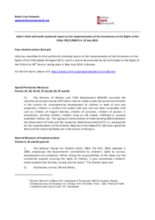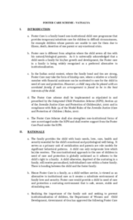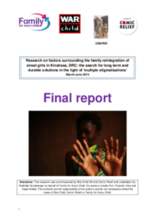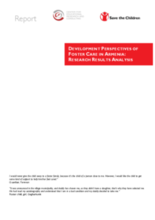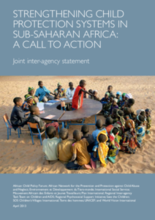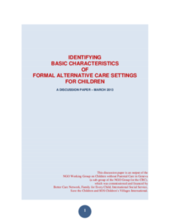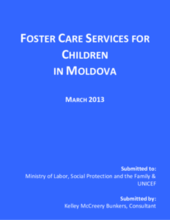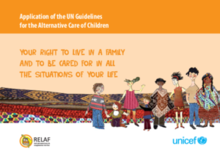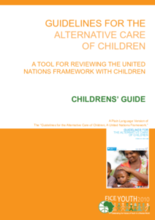Displaying 471 - 480 of 608
India submitted its third and fourth combined report on the implementation of the Convention on the Rights of the Child.
The state cabinet of Goa in India has approved a foster care scheme to assist children deprived of parental care or of the care of guardians, and in need of protection. These government guidelines set out the purpose of the scheme, criteria for eligibility and procedures to be followed, including the relevant forms.
This article describes the historical background and current situation of the child welfare system for children without parental care in Poland.
This research looked at the factors affecting the family reintegration of girls in the Tshangu district of Kinshasa (DRC), an operational zone of the local NGO OSEPER, a partner of War Child for a 3-year project, seeking to address the needs of street-connected girls, including family reintegration.
This report produced by the Center for Educational Research and Save the Children summarises a broader research study which examined the foster care pilot programme introduced in Armenia in 2005. The study aimed to find out if the pilot program succeeded, what problems arose, how the program could be improved and how foster care in Armenia could develop and expand effectively.
Thirteen agencies working in Africa have issued a Joint Statement calling on African governments to strengthen their child protection systems to secure the right of children to a life free from violence, abuse, exploitation and neglect in both emergency and non-emergency settings.
The discussion paper provides an overview of existing definitions of formal care within the UN Guidelines and a summary of the basic characteristics identified for each, together with explanations for the proposed characteristics.
This important assessment of foster care services in the Republic of Moldova explores the differences between the two main types of foster care services provided in that country, including in terms requirements and profiles of caregivers and of the children, the legal and policy framework underpinning them, including the legal status of the foster parent, as well as the allowances and benefits for each type of care
This RELAF booklet, Application of the UN Guidelines for the Alternative Care of Children, is a child-friendly guide to the Guidelines of for the Alternative Care of Children meant for children and adolescents to inform them of their right to live with their families and make that right a reality.
This booklet from SOS Children’s Villages International was created for young people to explain in a simple manner the main points of the Guidelines for the Alternative Care of Children approved by the United Nations General Assembly in 2009. The booklet helps its young audience think about the principles of alternative care and what these mean for children and families in different situations.

